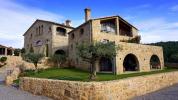H2020 SMART Project: Sustainable Market Players for Responsible Trade
- Type Project
- Status Filled
- Execution 2016 -2020
- Assigned Budget 2.491.210,00 €
- Scope Europeo
- Main source of financing Horizon 2020
- Project website Proyecto SMART
Supporting the transition to sustainability With our comprehensive analysis as a foundation, we develop reform proposals to bring about the necessary change. We strongly believe that achieving sustainability is possible (video 1 m 27 s: https://youtu.be/Vu0pU47lWPk ). The transition to sustainability has a solid legal basis in the EU’s overall objectives set out in its Treaties, with duties to protect the environment, human rights and human dignity, within the EU and in the EU’s relations with the rest of the world. To achieve sustainability, we need to change the way businesses operate. Our elaborate set of reform proposals ( https://www.smart.uio.no/reform_proposals ) aims to support the transition to sustainability, as we outlined in our 2019 introductory report Supporting the transition to sustainability ( https://ssrn.com/abstract=3503310 ).
Our reform proposals seek to change the way business and finance operate, and how products are produced and consumed. Our goal is to make it easier for business and finance to create value sustainably, and for products to be produced and consumed in ways that contribute to ensuring a safe and fair space for humanity within the boundaries of the planet. The detailed proposals are presented in three main reports, with sustainability due diligence as a common thread. In “Securing the Future of European Business” ( https://ssrn.com/abstract=3595048 ), we present suggestions on how international trade and investment law can better boost sustainable business and how to integrate sustainability into the purpose of companies and board roles (5m 52s video: https://www.youtube.com/watch?v=qMIWifFv94o&feature=youtu.be ). In Financing the Transition to Sustainability ( http://dx.doi.org/10.2139/ssrn.3594433 ) we aim to strengthen and expand the EU Sustainable Finance Initiative, ensuring that both public and private finance are geared towards sustainability (video 7 m 15 s: https://youtu.be/dQeneISGmwc ).
In Towards a Sustainable Circular Economy ( https://ssrn.com/abstract=3596076 ) we make suggestions on how sustainability can be fully integrated into the production and consumption of products in the EU (video 5 m 3 s: https://youtu.be/_wiKK9NO00A ). Furthermore, there is a separate report feeding into the latter: Sustainability through Public Procurement ( http://dx.doi.org/10.2139/ssrn.3559393 ). Our reform proposals concern the EU as a global actor and the EU as a legislator and policymaker. We have also developed SMART guidelines for EU policy coherence for development that is fit for purpose ( https://ssrn.com/abstract=3596036 ) and the SMART guide to the sustainability assessment process in companies ( https://www.smart.uio.no/publications/reports/d.5.4-v0.2_wp5.pdf ).
From the SMART Project to the SMART Legacy Our flagship project, Sustainable Market Actors for Responsible Trade (SMART), has concluded. The SMART project was funded by the European Union's Horizon 2020 research and innovation program and brought together over 70 academics from 25 research institutions around the world. The project ran from March 1, 2016, to February 29, 2020. The project was coordinated by Professor Beate Sjåfjell. SMART aimed to ensure the contribution of market actors to sustainability, which we define as securing the social basis for humanity, now and in the future, within planetary boundaries. Watch our short video (1 minute and 40 seconds: https://youtu.be/HgVC8OB99ec ) about it! Barriers and Possibilities for Sustainability
An important first step at SMART was to conduct a comprehensive state-of-the-art analysis of market players' contributions to sustainability. Focusing on the global value chains of products sold in Europe, our analysis brings together the findings of research conducted at the international law and policy level, at the EU level, and at the level of selected Member States. We complemented our regulatory analysis with bottom-up studies of the life cycles of textiles and mobile phones, identifying a variety of factors that keep product production and consumption on a linear and unsustainable path (video 1m 14s: https://youtu.be/ZuPscIS0-74 ).
We identify the barriers, gaps, and inconsistencies in regulatory frameworks that prevent market players from making more sustainable choices. We also identify opportunities for improvement if we collectively want sustainability. Our analysis was summarized in the 2018 report Obstacles to Sustainable Global Business ( http://dx.doi.org/10.2139/ssrn.3354401 ).
This project aims to address an increasingly pressing global challenge: how to achieve EU development goals and the UN Sustainable Development Goals, while also meeting the global objective of staying within two degrees of global warming and avoiding transgressing other planetary boundaries. EU policies must be aligned with the sustainable development goals (Article 11 TFEU). The impacts of climate change and the global loss of natural habitats undermine the progress made in achieving the Millennium Development Goals and threaten the realization of EU development policy objectives. We focus on the role of public and private market actors in the EU.
They have a high level of interaction with actors in emerging and developing economies and are therefore crucial to achieving the EU's development goals. However, scientific evidence still fails to provide insight into how the regulatory environment influences their decision-making, nor into how we can encourage them to make development-friendly, environmentally and socially sustainable choices. Comprehensive and innovative research is needed on the regulatory complexity within which public and private actors in the EU market operate, particularly with regard to their interactions with public and private actors in developing countries.
Our Consortium, comprised of leading experts in law, economics, and applied environmental and social sciences, is capable of analyzing this regulatory complexity from a transdisciplinary and holistic perspective, both at a global level and in-depth, in the form of life cycles of specific products: ready-made garments and mobile phones. We contribute important new evidence-based insights into the factors that enable or hinder coherence in EU development policy; we will advance the understanding of how development concerns can be successfully integrated into non-development policies and regulations relating to market actors; and we provide tools to improve the assessment of the impact of PCD, as well as for better corporate sustainability assessment.
Facilitating Interdisciplinary Corporate Sustainability Research With the aim of encouraging others who wish to conduct interdisciplinary corporate sustainability research, we conclude our SMART project with an open access version of our Research Guide: Facilitating Interdisciplinary Corporate Sustainability Research: The SMART Research Guide ( https://ssrn.com/abstract=3626903 ).
SMART Legacy Plans As many of our SMART outcomes as possible are freely available, and we hope they will inspire broader academic and public debate about how to achieve sustainability.
We are continuing our research, both individually and in new projects, as well as our industry engagement through our Business and Finance Forums ( https://www.jus.uio.no/english/research/areas/companies/business-and-finance-forums/ ) and broader stakeholder engagement. We will seek to integrate SMART findings and insights into teaching and curricula at our SMART partner universities and beyond, to help shape the next generation of academics and practitioners.
Subscribe ( https://sympa.uio.no/jus.uio.no/subscribe/companylawgroup-info ) to our newsletter Companies, Markets and Sustainability ( https://www.jus.uio.no/english/research/areas/companies/newsletter/ ) to stay informed, and do not hesitate to contact us ( https://www.jus.uio.no/english/research/areas/companies/contact-us/ ) if you have any questions or suggestions.
- UNIVERSITETET I OSLO (UNIVERSITY OF OSLO)







